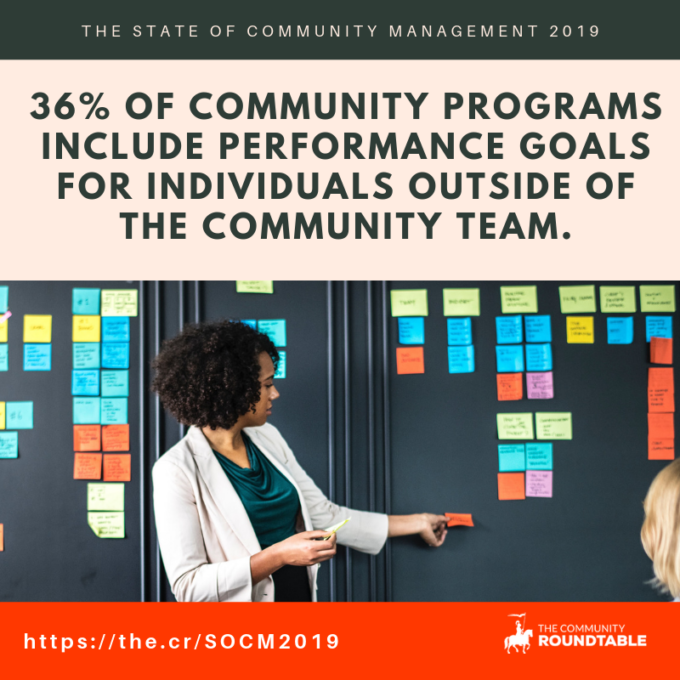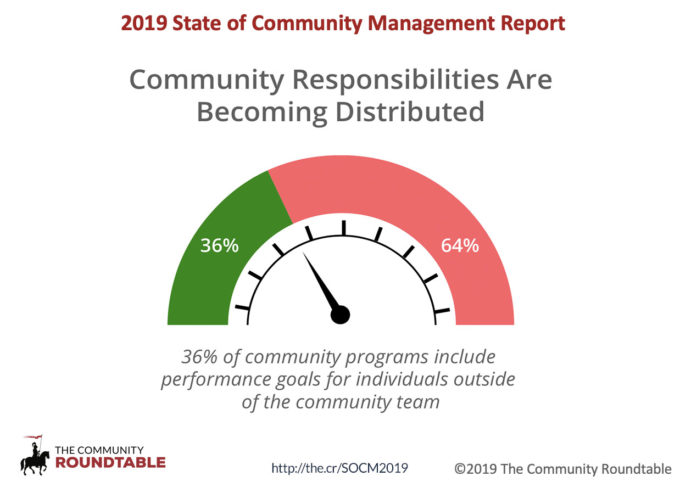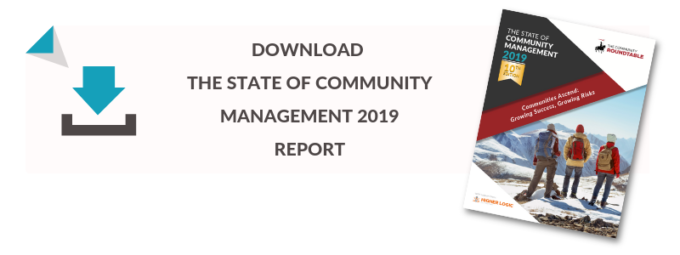
Communities are often mistaken as approaches for a single use case – and they can be successful that way. For decades, online communities used in a business context were often focused on customer support case deflection and 74% of external community programs still identify this as
a functional process they support. Those community programs deliver tremendous value to organizations, but are often sub- optimized when their focus remains narrow. They are also symbolic of a legacy mindset where functions are treated discretely. This mindset is quickly becoming outdated
as organizations work to streamline the
customer or employee experience, requiring
collaboration and integration across
functions.
The immense power, and great challenge, of community approaches is that they break down silos and barriers, making organizations more integrated, porous, and adaptive. In fact, for 36% of community programs there are individuals in other functional areas that have community- related performance goals. The functional areas outside of the community team to most likely have community performance goals are marketing, customer support, product/engineering, and learning & development.

Successful communities generate benefits for and require contribution from many functional budgets. That complexity is currently hard to manage successfully because most organizations operate with budgets and metrics that are rigid and discrete. However, there is growing recognition that customer and employee experiences span many functional processes and the next leap in organizational performance requires cross-functional solutions. Communities are the best and most sustainable method to integrating knowledge, innovation, and culture across silos. They deliver solutions that customers and employees are demanding, but need formal changes to organizational budgeting to be sustainable because too often community teams have to beg or borrow informally to secure the resources that they need to be successful.

Note: This post contains content originally published in the State of Community Management 2019 report. Download your free copy here.
